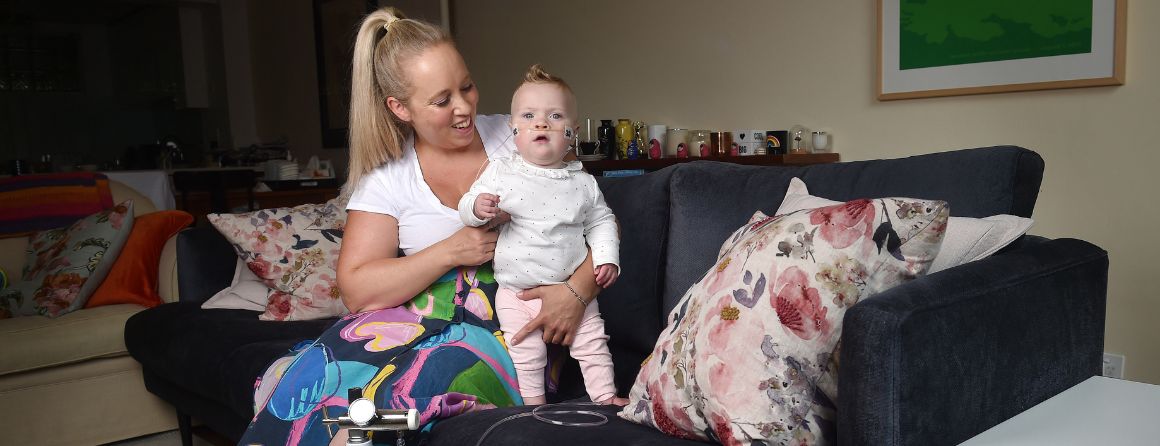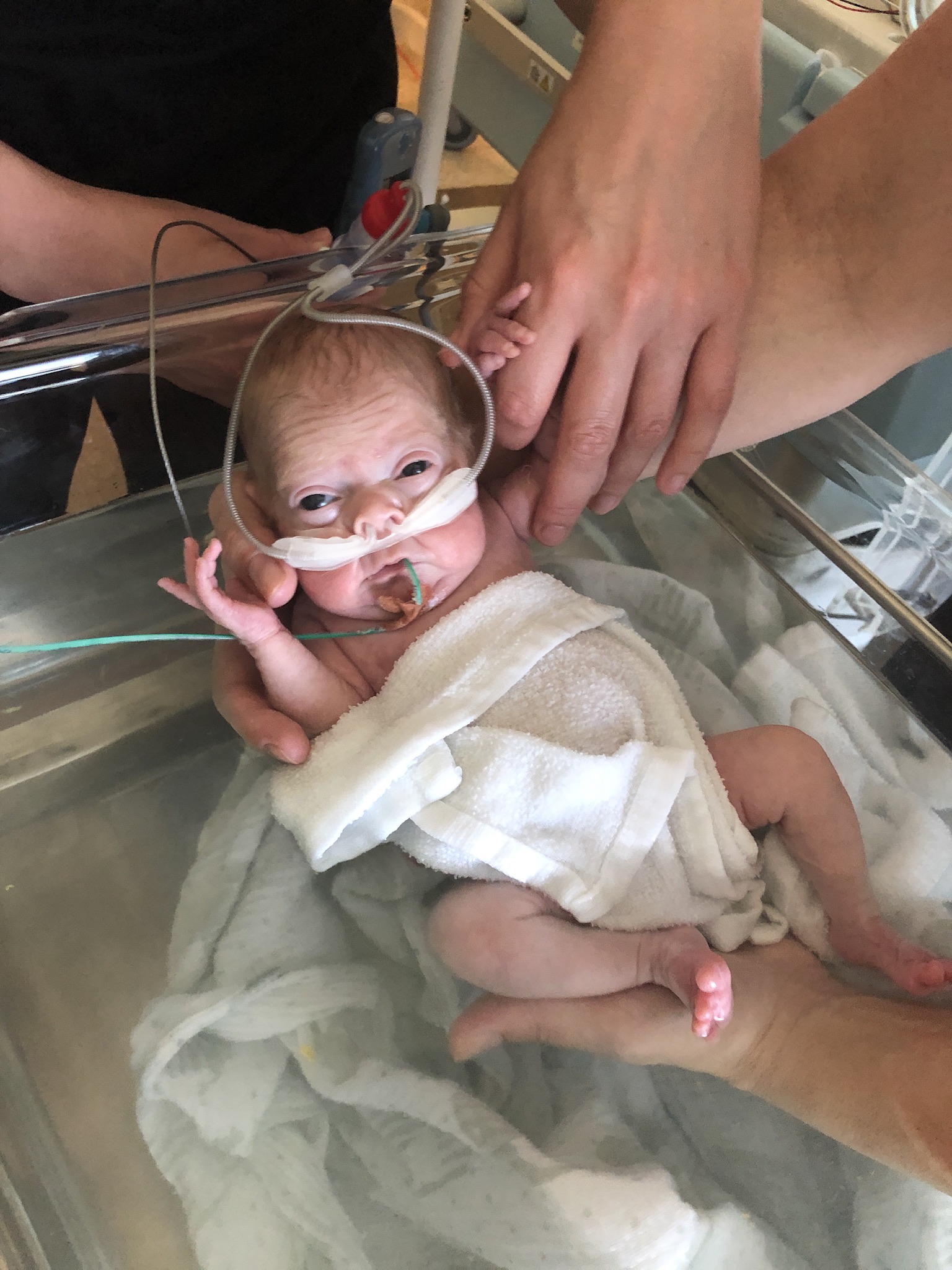Helping vulnerable infants thrive

Treatment and technology advances are helping more vulnerable newborns to survive and, in many cases, thrive. But we can still do better.
 When Joanna Bezette's daughter Milly, now 2, was born at just 25 weeks, she had to be intubated and spent five months in neonatal intensive care.
When Joanna Bezette's daughter Milly, now 2, was born at just 25 weeks, she had to be intubated and spent five months in neonatal intensive care.
Joanna said new technology being tested by Murdoch Children's researchers could help others avoid the family's trauma when it took a month to discover how underdeveloped Milly's lungs were.
"Having issues identified earlier would be very reassuring for a lot of parents with very sick babies because it's terrifying when you don't have any idea what's going on and what the future might look like," Joanna said.
For the first time, Murdoch Children's researchers have captured detailed images of newborns' lungs as they took their crucial first breaths, which is set to improve diagnosis and treatment of babies like Milly.
About 10 per cent of newborns, and almost all preterm infants, need resuscitation when their lungs don't properly fill with air at birth. In the trial, researchers used non-invasive electrical impedance tomography (EIT) technology. A small silk belt was placed around the chest of full-term babies born at the Royal Women's Hospital to facilitate high-resolution images of the lungs.
The images showed how air moved through the lungs for each breath, and the breaths turned out to be far more complicated than previously thought.
Murdoch Children's neonatal and respiratory leader Associate Professor David Tingay said the new technology did not require radiation or interrupt life-saving care.
He hoped the knowledge gained could also help doctors predict when a baby's lungs might fail at birth. "This study showed that babies' lungs are far more complicated than traditional monitoring methods had previously suggested," he said.
"Improving interventions in the delivery room first requires understanding the processes that define success and failure of breathing at birth."



